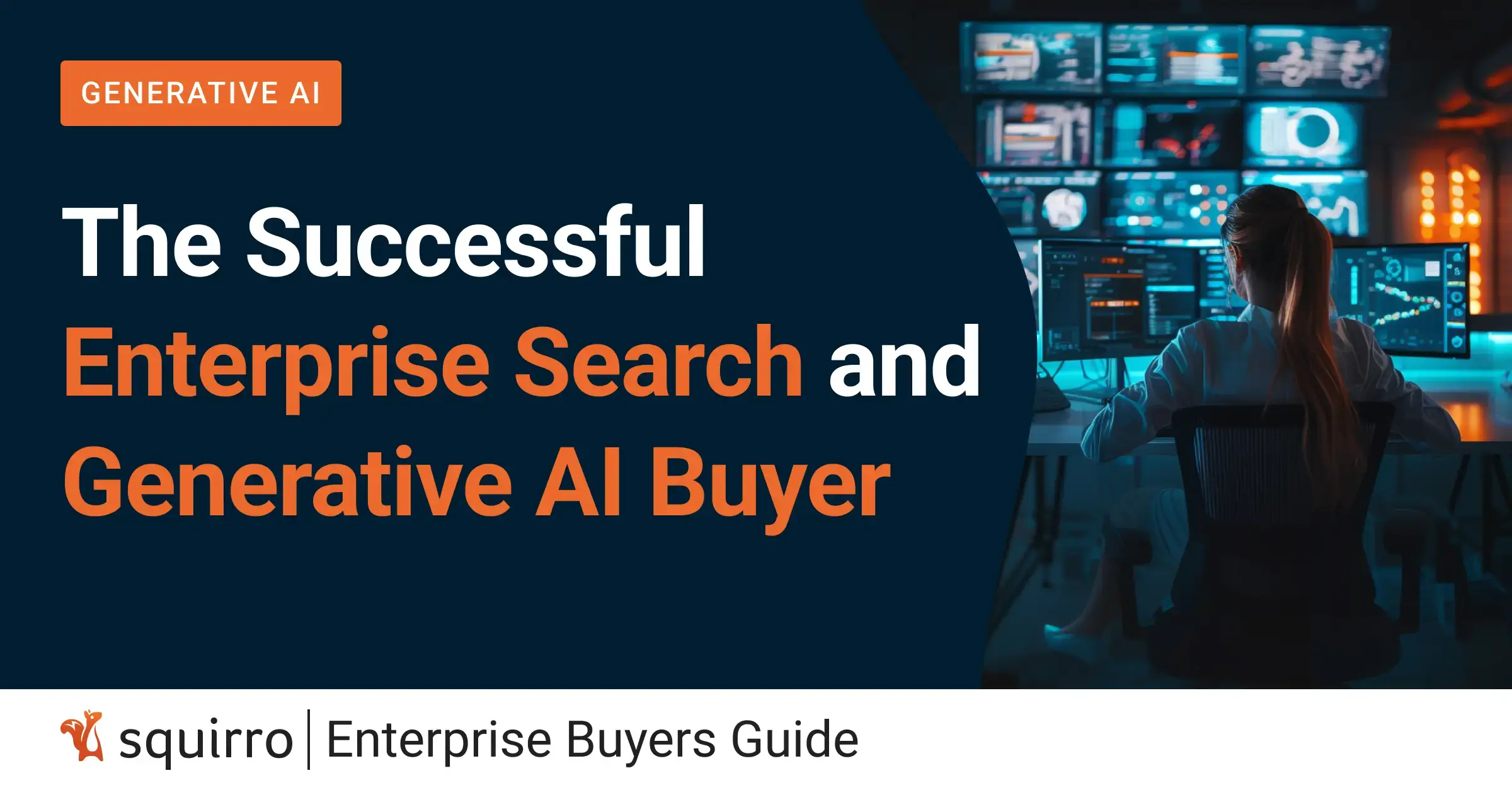With the emergence of generative AI, traditional approaches to managing large quantities of siloed data and enterprise search are being disrupted. The technological landscape surrounding enterprise search is undergoing a seismic shift, signaling a new era of unprecedented potential in data utilization. As a result, expectations for AI enterprise systems are being fundamentally reshaped.
(Update: For a more recent perspective, explore how enterprise search is revolutionizing the finance sector in our dedicated technical essentials guide: Driving Business Growth with Secure AI-Powered Enterprise Search)
Understanding the Nature of Traditional Enterprise Search Challenges
- Siloed Data: Fragmented data across different departments hampers efficient data retrieval and utilization.
- Software Overload: The plethora of third-party tools and applications complicates data access and searchability.
- Scalability Issues: As organizations grow, their search solutions must scale to handle increasing volumes of data and queries.
- Evolving Employee Expectations: Workers demand fast, seamless search experiences akin to what they enjoy in their personal lives.
- Handling Unstructured Data: The complexity of working with non-text-based formats like PDFs makes data extraction and categorization challenging.
- Lack of Metadata and Taxonomy: Establishing and maintaining consistent metadata standards and taxonomies across an organization is difficult but essential for precise search results.
- Data Privacy and Security: Ensuring that search systems comply with data protection regulations and that sensitive information is securely managed.
- Limitations of Keyword Search: Traditional keyword search methods used by legacy enterprise search software often fail to deliver the expected relevance and accuracy in search results.
Benefits of Semantic Enterprise Search and Opportunities for Generative AI
Semantic Search
Semantic search improves upon traditional keyword search used by legacy enterprise search software. While keyword search relies on matching specific words or phrases, often leading to poor quality or irrelevant results, semantic search understands the context and intent behind a query. It interprets the meaning of the words, considering synonyms, industry jargon, and even the user's previous search behavior.
This nuanced understanding allows semantic search to deliver highly relevant and accurate results, reducing the time and effort users spend sifting through unrelated information.
Combined with the right information retrieval stack, semantic search dramatically increases a worker’s chance of finding the right information from the right source when they search.
Generative AI
Generative AI has the potential to transform enterprise search into a dynamic, interactive experience. It changes the relationship from digging through your data to conversing with it. The technology is capable of understanding queries in natural language, recognizing patterns, and even anticipating needs based on previous interactions.
The Magic of Combining Semantic Enterprise Search with Generative AI
-
Boost in Efficiency and Productivity:
Automates routine tasks (e.g., RFP responses, service ticket resolution, ESG data extraction) and frees up human resources for complex, strategic tasks.
-
Cost Reduction and Revenue Enhancement:
Saves time and resources in information retrieval, uncovers revenue opportunities via better customer experiences and innovative products. Identifies market gaps and operational inefficiencies.
-
Workplace Transformation:
Enhances employee satisfaction by simplifying access to information and Promotes a culture of innovation, encouraging creative contributions.
What to Look For in an Generative-AI Enabled Enterprise Search Platform
When selecting an enterprise search platform, selecting the right partner is critical. A well-chosen platform not only revolutionizes the way your organization interacts with its data, but also serves as a catalyst for growth and digital transformation. Below are the key features and attributes to consider when evaluating an enterprise search platform.
Here's a sneak peek:
Robust Information Retrieval (IR) Stack
Integration with Existing Tools and Systems
Advanced Semantic Search Capabilities
Freedom to Choose Your Own Model
User Experience
Transparency
FAQ: Generative AI and Semantic Enterprise Search
What is semantic enterprise search?
How does generative AI transform enterprise search?
Generative AI revolutionizes enterprise search by making it a dynamic, interactive experience. It allows for natural language queries, recognizes patterns, and can anticipate needs based on previous interactions, transforming data searches into conversational engagements.
What challenges do traditional enterprise search systems face?
Traditional systems struggle with siloed data, software overload, scalability issues, evolving employee expectations, handling unstructured data, lack of metadata and taxonomy, data privacy and security concerns, and the limitations of keyword search accuracy.
Why is choosing the right enterprise search partner critical?
The right partner can revolutionize how your organization interacts with its data, serving as a catalyst for growth and digital transformation. It's crucial to select a partner with a proven track record, innovative capabilities, and a commitment to security and privacy.
How do semantic search and generative AI enhance user experience?
By understanding the context and intent behind searches and allowing for natural language queries, these technologies provide more accurate and relevant search results, significantly improving the search experience.







